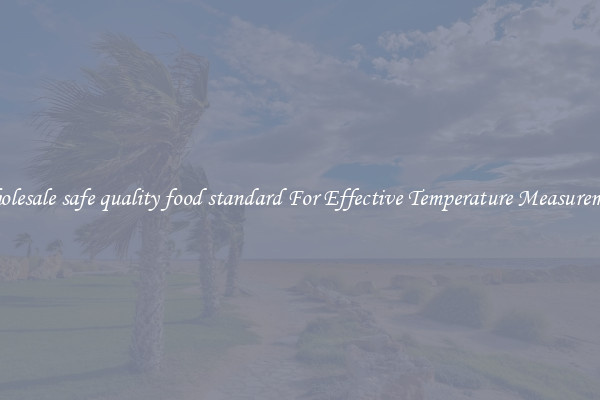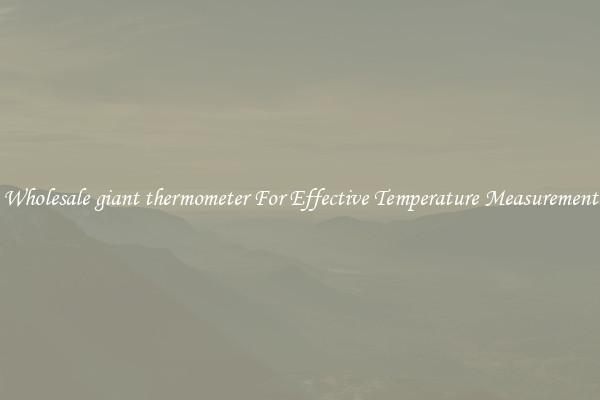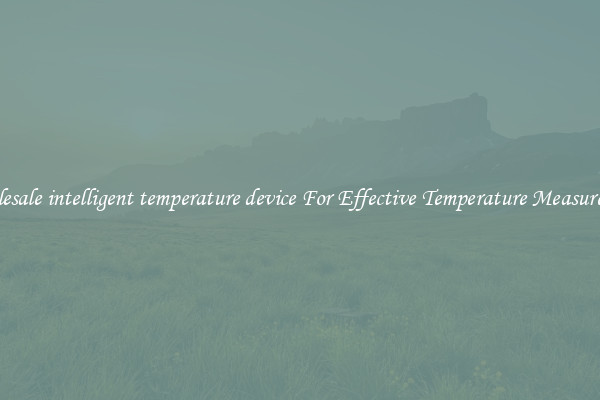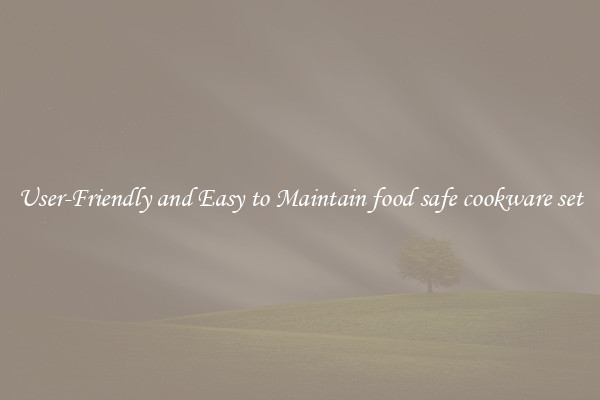Wholesale safe quality food standard For Effective Temperature Measurement
Wholesale Safe Quality Food Standard for Effective Temperature Measurement

Food safety is of utmost importance in wholesale operations. The wholesaler is responsible for ensuring that the food products they distribute are safe for consumption. One critical aspect of food safety is maintaining the proper temperature during storage, transportation, and delivery. Effective temperature measurement plays a vital role in preventing the growth of bacteria and ensuring the quality of the food products.
To maintain the integrity of food products, wholesalers must adhere to certain temperature standards. These standards are set by regulatory bodies to ensure that the food remains safe and of high quality. The guidelines state that food should be stored at specific temperatures to prevent bacterial growth and reduce the risk of foodborne illnesses.
Effective temperature measurement in the wholesale industry involves the use of various instruments. One commonly used tool is the thermometer. Digital thermometers provide accurate temperature readings and are easy to use. They can be inserted directly into food products or used to measure the temperature in storage or refrigeration units. Regular calibration of the thermometers is essential to ensure accurate readings.
Thermocouples and thermal imaging cameras are other tools used for temperature measurement in the wholesale industry. These advanced technologies allow for quick and non-invasive temperature measurements. They can be used to scan large batches of food products or storage areas, providing valuable information about potential hotspots or areas of concern.
The benefits of effective temperature measurement in the wholesale industry are abundant. Maintaining the proper temperature of food products throughout the supply chain helps extend their shelf life. This reduces food waste and allows wholesalers to meet consumer demands efficiently. Additionally, accurate temperature measurement ensures that consumers receive safe and high-quality food products, protecting them from food poisoning and other health risks.
Wholesalers should implement robust temperature monitoring systems to ensure compliance with food safety regulations. These systems should include regular temperature checks, documentation of readings, and prompt action in case of any deviations from the recommended standards. Monitoring systems equipped with alarms or notifications can alert staff to any temperature fluctuations, enabling them to take immediate corrective measures.
Furthermore, staff training plays a vital role in maintaining effective temperature measurement standards. Proper training empowers employees with the knowledge and skills required to handle and monitor food products properly. They will be able to identify potential temperature-related issues and implement preventive measures to protect product quality.
In conclusion, effective temperature measurement is crucial in the wholesale industry to maintain safe and high-quality food products. Wholesalers must adhere to the temperature standards set by regulatory bodies and invest in advanced temperature measurement tools. Implementing robust temperature monitoring systems and providing proper training to staff ensures compliance with food safety regulations and protects consumers from health risks. By prioritizing temperature measurement, wholesalers can enhance food safety and meet consumer expectations for safe, quality food products.

View details

View details

View details

View details








